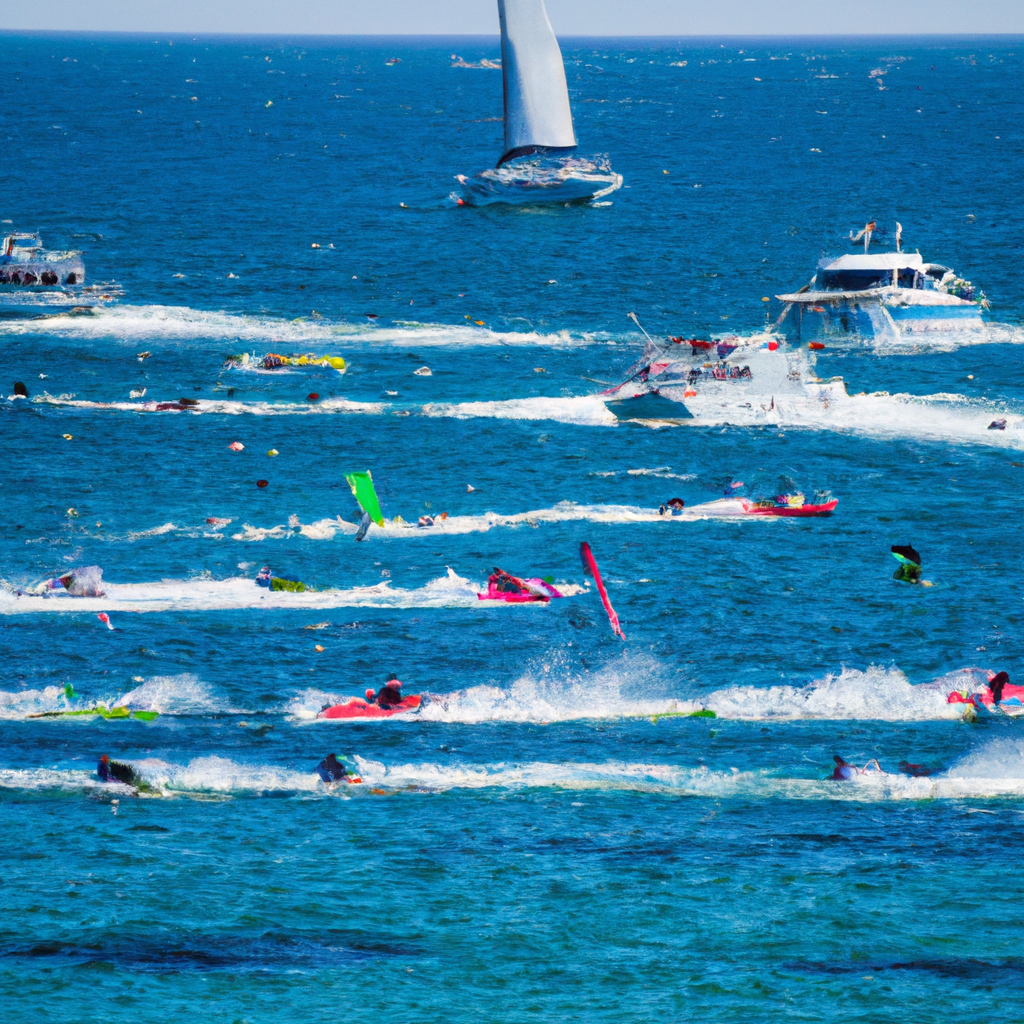Setting Sail for New Horizons: A Guide to Learning and Courses in Nautical Activities

The vast and exciting world of water sports has captured the imagination and interest of thousands of people around the world. From sailing, rowing, scuba diving, to water skiing and yachting, the possibilities are endless and the experiences unforgettable. In this article, we delve into exploring this fascinating field, placing particular emphasis on the water sports courses available. From the variety of options available to selecting the most suitable course for your needs and goals, we will present you with a comprehensive guide to help you embark on this adventure. In addition, we will discuss the benefits and challenges involved in learning these activities. Whether you are a novice looking for a new passion, an adventurer looking for a thrill, or a water sports enthusiast considering taking your hobby to the next level, this article will provide you with valuable information as you navigate your way to your next great journey.
- 1. "Exploring the world of nautical activities: an introduction"
- 2. "Types of nautical activity courses available"
- 3. "Benefits and challenges of learning nautical activities"
- 4. "How to select the right nautical activity course for you"
1. "Exploring the world of nautical activities: an introduction"
The world of water sports is vast and exciting, encompassing a wide range of experiences and disciplines to explore. From sailing to diving, surfing, kayaking and sport fishing, water sports offer numerous ways to interact with water and nature. Not only do these activities provide an exciting and engaging form of physical exercise, they can also be a gateway to understanding marine ecosystems and environmental conservation. For beginners, proper education and training is essential. Through courses and apprenticeship programs, interested parties can gain the skills necessary to safely and responsibly enjoy these activities, whether for leisure, competition or even as a potential career path.
2. "Types of nautical activity courses available"
There are various types of water sports courses available for people of all ages and experience levels. Among the most popular are sailing courses, which teach basic and advanced techniques for sailing sailing vessels. Diving courses are also offered, ranging from beginner levels to advanced courses that include night and wreck diving. For those interested in water sports, there are windsurfing, kitesurfing and paddle boarding courses. In addition, there are canoeing and kayaking courses that focus on the skills needed to maneuver these types of vessels. For the more adventurous, there are even maritime survival courses that teach essential survival skills in the event of an emergency on the high seas.
3. "Benefits and challenges of learning nautical activities"
Learning nautical activities brings a variety of benefits both physically and mentally. These include improving coordination, balance and physical strength; fostering team and leadership skills; and promoting self-confidence and self-esteem. In addition, sailing and other nautical activities can provide a deep connection with nature and a sense of peace and tranquility that can be hugely beneficial to mental well-being. However, it also presents challenges. Learning these activities can be physically demanding and requires a significant time commitment. In addition, it can involve risks if proper precautions are not taken, such as using safety equipment and adhering to maritime regulations. Finally, the cost of training and the necessary equipment can be prohibitive for some.
4. "How to select the right nautical activity course for you"
Selecting the right water sports course for you requires careful consideration of your interests, abilities, and goals. First, you need to define what type of water sports activity appeals to you most – this could be sailing, kayaking, diving, or surfing, among others. Then, assess your skill level and experience in that specific area to choose a course that aligns with your current capabilities. Some courses are for absolute beginners, while others require a certain degree of experience. Also, consider your goals – whether you’re just looking for fun or want to gain skills to compete or become a professional. Finally, research the course provider’s reputation and credentials to ensure you receive quality training.
